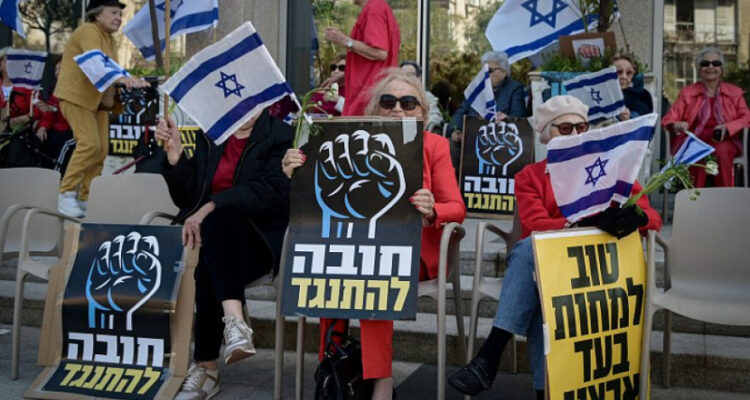Can the spirit of national unity last for more than a few days, considering that talks aimed at securing a compromise on judicial reform are reportedly failing?
By Lauren Marcus, World Israel News
After a Memorial Day which saw stark politicization of the typically somber occasion, including unprecedented clashes in military cemeteries between bereaved families with differing political opinions and lawmakers dropping out of ceremonies in which they normally participate due to political tensions, many bemoaned the prevalent feeling of disunity within Israeli society.
But a recent flare-up with terrorists in the Gaza Strip served as a rallying point for Israelis, with lawmakers from all sides of the political spectrum publicly supporting the Israeli military and offering their support to residents of southern Negev communities, who were bombarded by more than 100 rockets in a one-day span.
Even Opposition Leader Yair Lapid, who recently rebuffed calls for a pause to anti-government protests on Israel’s Independence Day, took to Twitter to emphasize his support for the government in a military context.
“The opposition will support the government in any military action that will bring peace and security to the residents of the south,” he wrote on Tuesday evening.
His sentiments were echoed by other opposition parties, who called for the Israeli military to protect citizens in the Negev.
Lapid, who is a longtime political enemy of Prime Minister Benjamin Netanyahu, has spent much of his time in recent months agitating against the premier and right-wing voters, steadfastly refusing to tone down his rhetoric for the sake of national unity.
The question now is whether this spirit of unity can survive more than a few days, considering that negotiations regarding a compromise on judicial reform have reportedly gone off the rails.
Opponents of the reform have framed the legislation, which would create changes to Israel’s legal system that would curb the powers of the Supreme Court and see elected officials wield greater influence over the courts, as an existential threat to the State of Israel.
Many judicial reform opponents have said that a compromise isn’t a viable option, and that they will only cease their disruptive demonstrations should the legislation be shelved entirely.
With this rhetoric coming from the protest movement’s leaders, along with the demonization of voters and lawmakers who support the reform, it’s unclear if Israelis can move forward as a untied bloc when dealing with other pressing issues, such as the soaring cost of living, housing crisis and lay-offs in the tech industry.
Based on a prediction from Sderot Mayor Alon Davidi, there will likely be fresh round of fighting with Gaza in the summer – so it may be just a matter of time before another clash brings the country together once again.




